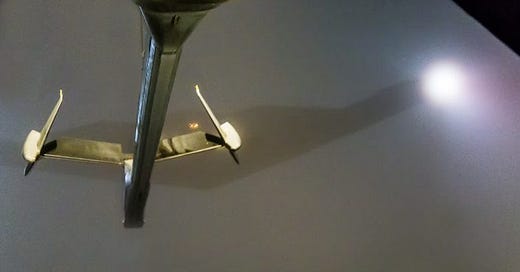CL: CUI
“Success will be less a matter of imposing one’s will and more a function of shaping behavior ― of friends, adversaries and, most importantly, the people in between.” - Secretary of Defense Robert Gates, 2007
Intel of Note
Mr.Potato Head is a Spy?
That potato chip bag casually left in your meeting room is a spy, at least it can be used by one to eavesdrop on your conversation if needed. Researchers from MIT’s Computer Science and Artificial Intelligence Laboratory, as well as other researchers from Microsoft & Adobe, have developed a way to reconstruct audio from the visual vibrations of everyday objects.
Without getting too technical, when sound hits an object the item will vibrate as a result of the audio waves. Those vibrations, while extremely small, can be detected on video. Using algorithms those vibrations can be analyzed & reconstructed back into actual sound with surprising accuracy. During the experiments, this was done with high-speed cameras pointed at objects that were encased in soundproof glass. The items included chip bags, plants, aluminum foil & even glasses of water.
Using this technology researchers believe they have the ability to deduce the number of speakers in a room as well as their gender. Given enough information, they claim they can also properly identify the speaker themselves. All of that can be done without the use of high-speed cameras, only regular off-the-shelf cameras are required. The average person‘s phone would have no trouble capturing the necessary video information.
Considerations
This took place in 2014.
Competing
“Competing effectively requires knowing your competition intimately. Only by understanding a competitor’s worldview, decision making, and behavioral proclivities can one outmaneuver that competitor; only by grasping a rival’s weaknesses and fears can one exploit them. Such understanding, in turn, requires sustained intellectual and economic investment.” - Hal Brands
Competition is constant & enduring. It does not matter if you are a nation, state, organization, company or individual. You are always in a state of competition. However, this does not mean that you are always “at war.” Just because there is competition does not mean there is conflict. Competition can exist anywhere along the spectrum between peace & war. Understanding competition, as well as understanding who you are competing with, is essential in relations, business & life.
Within competition, some elements are always present including ambiguity, uncertainty, fluidity, disorder & complexity. Each of these elements can either be a source of competitive advantage if used correctly or an Achilles‘ heel that will cause failure. A competitive advantage is the ability to possess something better or to do something better than your opponent and is always relative to the opponent.
Tools
The tools that are available during competition vary wildly depending on various factors as competition itself is a dynamic system. Generally, the tools fall into one of the following categories:
Diplomatic - Negotiation & policy, political warfare
Informational - Communication or the lack of, information warfare
Military - The threat of violence, force projection
Economic - Sanctions & other forms of economic warfare
This is known as the DIME framework. While primarily a framework applied to nations competing with each other it is still valuable to be aware of & to understand.
Types
There are two types of competition: Zero-Sum & Positive-Sum.
Zero-Sum competition means that only one of the involved entities can achieve their objectives
Positive-Sum competition means that multiple entities involved can reach & achieve their objectives.
Considerations
What competitive advantages do you possess?
What competitive advantages does your opponent possess? How can you mitigate them?
Valuable Skills
Back in 2018, the World Economic Forum (WEF) released a report analyzing the expected change in the job landscape from 2018-to 2022. Below are two lists. One is a list of skills that the WEF thought would be valuable going forward into the future while the other is a list of skills they believe are on their way out and will no longer be needed. According to the WEF, the job market was going to drastically shift between 2018 and 2022 (I'll leave you to draw your own conclusions on that prediction) with businesses and organizations investing more and more into automation and robotics.
First, an issue
The article summarizing the report has a few graphics to help illustrate the data. One graphic entitled "The Jobs Landscape in 2022" lists the top 10 emerging and declining jobs. Some of the jobs listed include Customer Service Workers, Data Analysts, Operations Managers, and Technology Specialists. The issue arises when it becomes apparent that Customer Service Workers, General Managers & Operations Managers are listed on both lists. So those positions are emerging and declining at the same time? Would that not mean that they are stagnant and therefore do not need to be included? I digress, on to the skills.
Valuable skills
Analytical Thinking
Creativity
Persuasion & Negotiation
Leadership and Social Influence
Non-Valuable Skills
Reading
Writing
Memory
Speech
Time Management
Coordination
Considerations
The "non-valuable" skills seem like fairly important skills to possess as an individual capable of making their own choices, unless…
TMYK
C-32B registration 02-5001 recently took an interesting trip, we detail the trip in this post on Reddit. If you are unaware of what a C-32B is don’t worry, that is intentional both on our part & the part of the USAF who does or does not operate a fleet of the mysterious aircraft. If you ask them there are only 2, if you ask reality there are at least 4. More information to follow.




